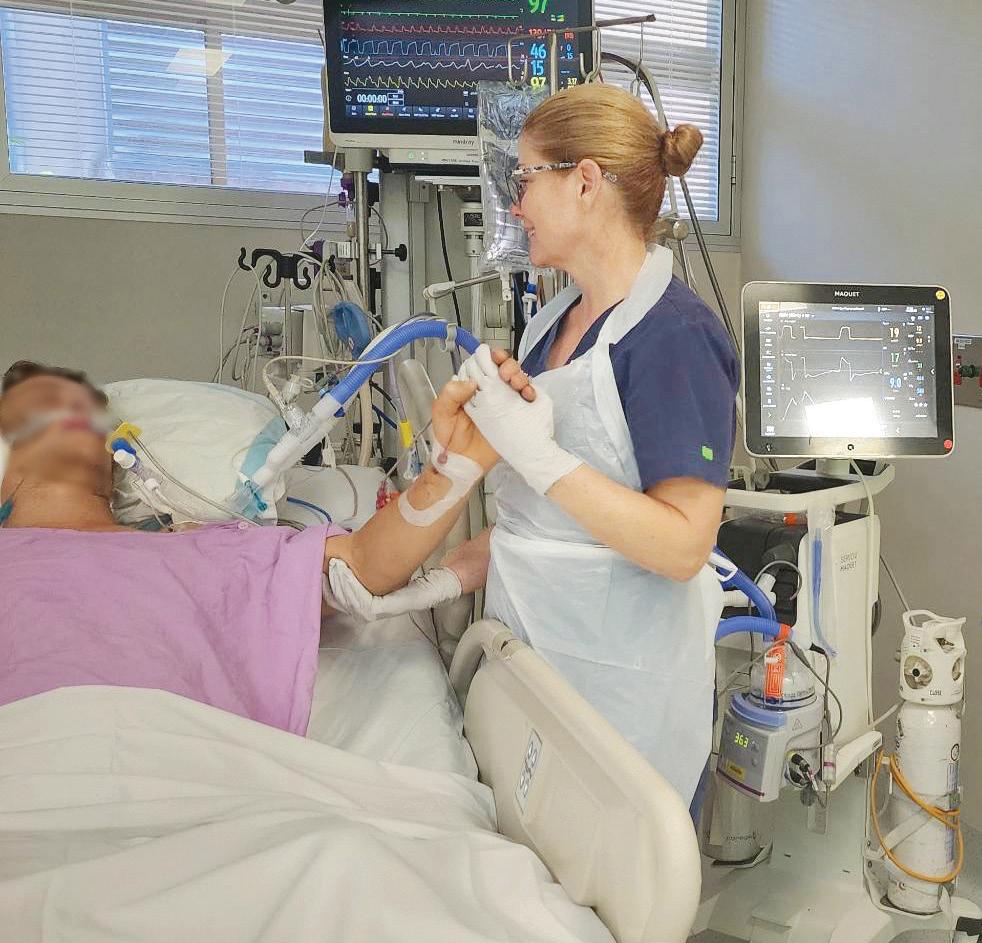
2 minute read
delirium in the ICU
BY KELLIE SOSNOWSKI, QNMU MEMBER AND PHD CANDIDATE, GRIFFITH UNIVERSITY
Delirium is a serious condition that is often underrecognised in the health care setting. In fact, it is the most common of hospital-acquired complications (HAC) identified by the Australian Commission on Safety and Quality in Health Care. In 2016 – 2017, the cost associated with delirium in Australia was estimated to be $8.8 billion.
Advertisement
Delirium is an especially concerning complication for the critically ill patient, as it occurs frequently but is often poorly recognised. In the ICU (Intensive Care Unit), delirium is associated with prolonged hospitalisation and an increased risk of mortality 1. Impairments related to delirium may persist well beyond hospital discharge and can impact the quality of life for the patient and their families 2
Prevention is better than treatment, and in the care of delirium, treatment has limited effect.
The A B C D E F bundle is a multidisciplinary care bundle that aims to prevent delirium and other common complications, ultimately improving recovery from critical illness. The bundle components are:
A SSESS, prevent, and manage pain;
B OTH spontaneous awakening trials and spontaneous breathing trials;
C HOICE of analgesia and sedation;
D ELIRIUM: assess, prevent, and manage;
E ARLY mobility and exercise; and
F AMILY engagement and empowerment.
The A B C D E F bundle differs from other ICU care bundles as it can be used with every ICU patient every day, regardless of mechanical ventilation status or admitting diagnosis.
So, given the complexity and challenges of the
A B C D E F bundle, what is the evidence for its use?
Our research team recently conducted a systematic review and meta-analysis to answer this question 3
(NCREN)
The review showed that when compared with standard care, implementing the A B C D E F bundle resulted in a statistically significant reduced risk of delirium incidence and statistically significant reduced duration of delirium (mean difference 1.37 days).
We also identified American and European research supports implementing the A B C D E F bundle in its entirety for both ventilated and non-ventilated ICU patients. However, there is a need for high-quality research evidence relating to using the bundle in Australian ICUs.
The A B C D E F bundle is a complex intervention that requires considered strategies to ensure successful implementation in the ICU.
Our research team is taking on this challenge, embarking on a body of research to contribute high-quality evidence on the effect of the bundle on Australian patients and to explore the process of implementation and integration by ICU clinical teams.
C P D
1. State two negative outcomes from delirium?
2. How could you use the ABCDEF bundle to reduce the risk of delirium for your patients?
Don’t forget to make note of your reflections for your record of CPD at www.qnmu.org.au/CPD
References
Herridge, M. S., Tansey, C. M., Matté, A., Tomlinson, G., Diaz-Granados, N., Cooper, A., ... & Cheung, A. M. (2011). Functional disability 5 years after acute respiratory distress syndrome. New England Journal of Medicine, 364(14), 1293-1304.
Mitchell, M. L., Shum, D. H., Mihala, G., Murfield, J. E., & Aitken, L. M. (2018). Long-term cognitive impairment and delirium in intensive care: A prospective cohort study. Australian Critical Care, 31(4), 204-211.
Sosnowski, K., Lin, F., Chaboyer, W., Ranse, K., Heffernan, A., & Mitchell, M. (2022). The effect of the ABCDE/ABCDEF bundle on delirium, functional outcomes, and quality of life in critically ill patients: A systematic review and meta-analysis. International Journal of Nursing Studies, 104410.






